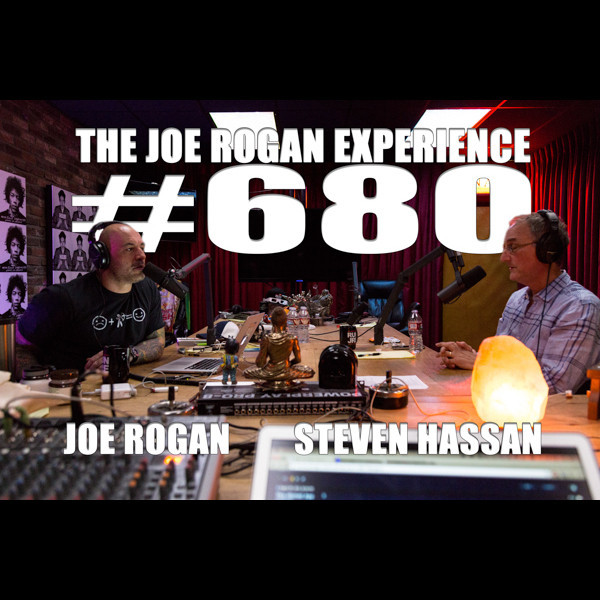8/7/2015
This podcast delves deep into the intricacies of cults and mind control with Steven Hassan, a licensed mental health counselor and expert on the subject. Hassan offers his personal experience as a former member of the Moonies (Unification Church) alongside his expertise in helping individuals escape destructive cults. Provocative topics include the nature of religion, the manipulation tactics used by cults, the impact of sleep deprivation, and the complexities of deprogramming. Underlying themes explore the importance of critical thinking, the vulnerability of the human psyche, and the potential for both positive and negative influence within groups.
Major Topics Explored:
- Hassan’s Personal Journey:
- His experience as a young, vulnerable college student who was recruited into the Moonies.
- The rapid indoctrination and manipulation techniques he underwent during his time in the cult.
- The severe sleep deprivation and intense commitment demanded by the group.
- His eventual deprogramming and rescue by his family.
- Defining Cults:
- Hassan emphasizes that not all cults are inherently negative, but rather identifies “destructive cults” that harm individuals.
- He differentiates between ethical and unethical influence, with cults exhibiting the latter through control, deception, and manipulation.
- Hassan argues against the common misconception that cult members are inherently stupid or weak, highlighting the situational vulnerabilities that can make individuals susceptible.
- He explains how the “bite model” helps identify destructive cults through specific behavioral components, including control over information, thoughts, and emotions.
- The Psychology of Mind Control:
- Hassan explores the classic studies of social psychology, including the Ash Conformity Study, the Milgram Obedience Experiment, and the Stanford Prison Experiment, to illustrate the susceptibility of humans to group pressure and authority.
- He explains how cults exploit these vulnerabilities through techniques like love-bombing, thought-stopping, and emotional manipulation.
- He highlights the importance of critical thinking and reality testing in resisting cult influence.
- He emphasizes the role of altered states of consciousness, like trance, in making individuals more susceptible to suggestion.
- Specific Cults and Their Tactics:
- Hassan discusses the Moonies, Scientology, Transcendental Meditation, and ISIS as examples of destructive cults.
- He reveals the specific methods used by each group, including brainwashing, hypnotic techniques, and the creation of a totalistic ideology.
- He exposes the financial exploitation and psychological abuse common to these groups.
- He explains how the internet and social media have become powerful tools for recruiting individuals into destructive cults.
- The Impact of Trauma and Abuse:
- Hassan addresses the long-term consequences of cult membership, including psychological trauma, shame, and confusion.
- He discusses the difficulties of deprogramming and reintegration into society after leaving a cult.
- He delves into the issue of false memories implanted by cults and the complexities of trauma processing.
- He advocates for an individualized approach to therapy, acknowledging the unique experiences and needs of each survivor.
- The Importance of Family and Community:
- Hassan emphasizes the role of family and community in resisting cult influence and supporting survivors.
- He highlights the common practice of “disconnection” used by cults to isolate members from loved ones.
- He advocates for reconnecting with families, even after enduring abuse, through professional mediation and a focus on healing.
- He challenges the notion that simply “cutting off” from abusive family members is always the best solution, urging individuals to consider the potential for growth and reconciliation.
- The Importance of Critical Thinking and Skepticism:
- Hassan urges listeners to develop a healthy skepticism and critical thinking skills.
- He advocates for researching groups and individuals before committing to any ideology or practice.
- He encourages seeking out diverse perspectives and questioning claims made by authority figures.
- He highlights the need for self-awareness and a strong sense of personal identity in resisting undue influence.
Memorable Quotes:
- “It’s not the techniques themselves. It’s not the ideology. It’s the belief that’s programmed into the Scientology identity that you have this higher truth, that you understand the nature of reality. ”
- “The easiest way to understand what I do as a former cult member myself. It’s really in support of the United Nations universal declaration of human rights.”
- “I think we’re very at a very low level of evolution in terms of our understanding of things.”
- “The key is is, you know, if somebody calls you on your shit that you step back and you lessen, and you reflect and you either correct your your your behavior or you don’t.”
- “The point is I’m in control. I’m deciding. I don’t have somebody who’s alienating me from my own inner voice and my own self and trying to imprint me with an a totalistic ideology that’s black and white us versus them, good versus evil.”
